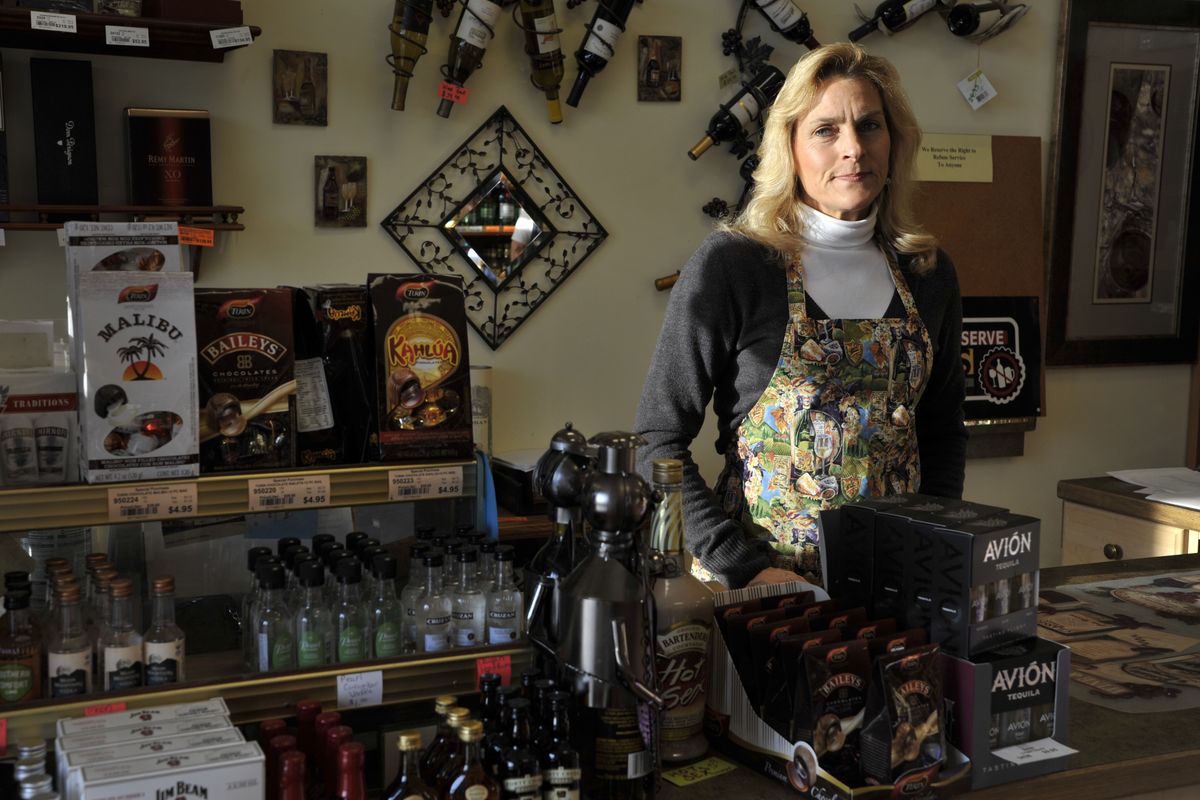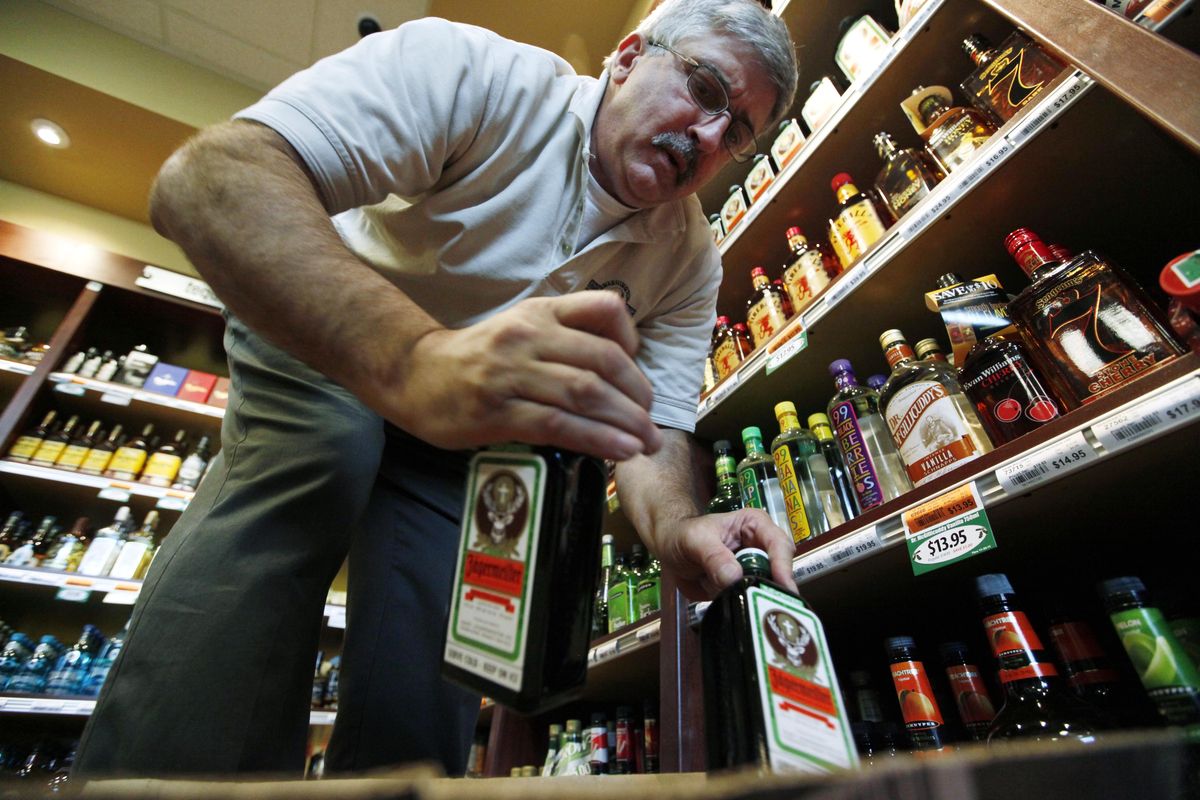State must close all of its liquor operations by June
Kelly Osterberger, owner of the contract Airway Heights Liquor Store, says she can’t compete with the likes of Walmart and Costco. “They will put us out of business,” said Osterberger. (Colin Mulvany)Buy a print of this photo
Sometime after the first of next year, the impact of the successful initiative ending Washington’s 78-year control of liquor sales will become more apparent.
That’s when state liquor stores, which are currently increasing inventory for holiday sales, will start to draw down their inventory. It’s also when contract stores, which are operated by individuals under agreements with the state, will look for new suppliers or decide to go out of business.
“Most of us will close,” Kelly Osterberger, owner of Airway Heights Liquor Store, predicted Wednesday, as vote totals were showing Initiative 1183 passing with about 60 percent support.
Owners of the state’s 163 contract liquor stores, most of whom signed five-year contracts with the state earlier this year, will be eligible to apply for retail licenses for their location. But the business model will change, and not in their favor, Osterberger said.
Right now, contract operators work on consignment; they survive on a small profit and don’t pay for liquor until they sell it. They remit the purchase price, minus a small commission, to the state.
Under the new law, they will have to buy their supplies wholesale and mark up to cover their costs, which will include new license fees mandated by I-1183. Osterberger estimated she had about $200,000 worth of alcohol in the store and doesn’t have the cash to purchase anywhere near that to stock the store after the law takes effect.
Small stores also will struggle to compete with discount giant Costco, which contributed record amounts to the I-1183 campaign, and other retail and supermarket chains expected to obtain retail licenses. Osterberger’s store shares a parking lot with Walmart, which hasn’t indicated whether it will start selling liquor, and a major supermarket is less than a mile down Highway 2.
Tillman Carr, owner of the Cheney Liquor Store, faces a similar dilemma. He shares a shopping plaza with a Safeway, and three other supermarkets in the city meet the I-1183 requirement of being at least 10,000 square feet and already sell beer and wine. He’d have to borrow money – if he could get a loan – to purchase inventory to stay in business.
Carr believes inventory problems and the loss of commission, plus competition from big-box stores, will force many contract store operators out of business.
Meanwhile, the state Liquor Control Board will begin “divesting” itself of retail and wholesale operations in January. Liquor distributors can begin selling distilled spirits in March; the state must close all of its stores and end its warehouse operation by June 1, and the remaining inventory must be sold off over the next year.
It will have to figure out a system to compensate contract liquor store owners that are forced out of business by the initiative.
About 900 of the board’s 1,400 employees work in either the wholesale or retail sales force, said Brian Smith, a spokesman for the agency. Some may be able to go into the state worker pool and qualify for another job based on seniority rights, but “the vast majority” will be out of work, he said. Most wholesale and retail employees don’t come to the agency from another state department because those jobs are unique to Liquor Control.
“Our assumption is state stores will look pretty much the same through December,” Smith said. That’s because they recently increased inventory to meet increased holiday sales. After January, customers might notice that shelves are not being restocked.

